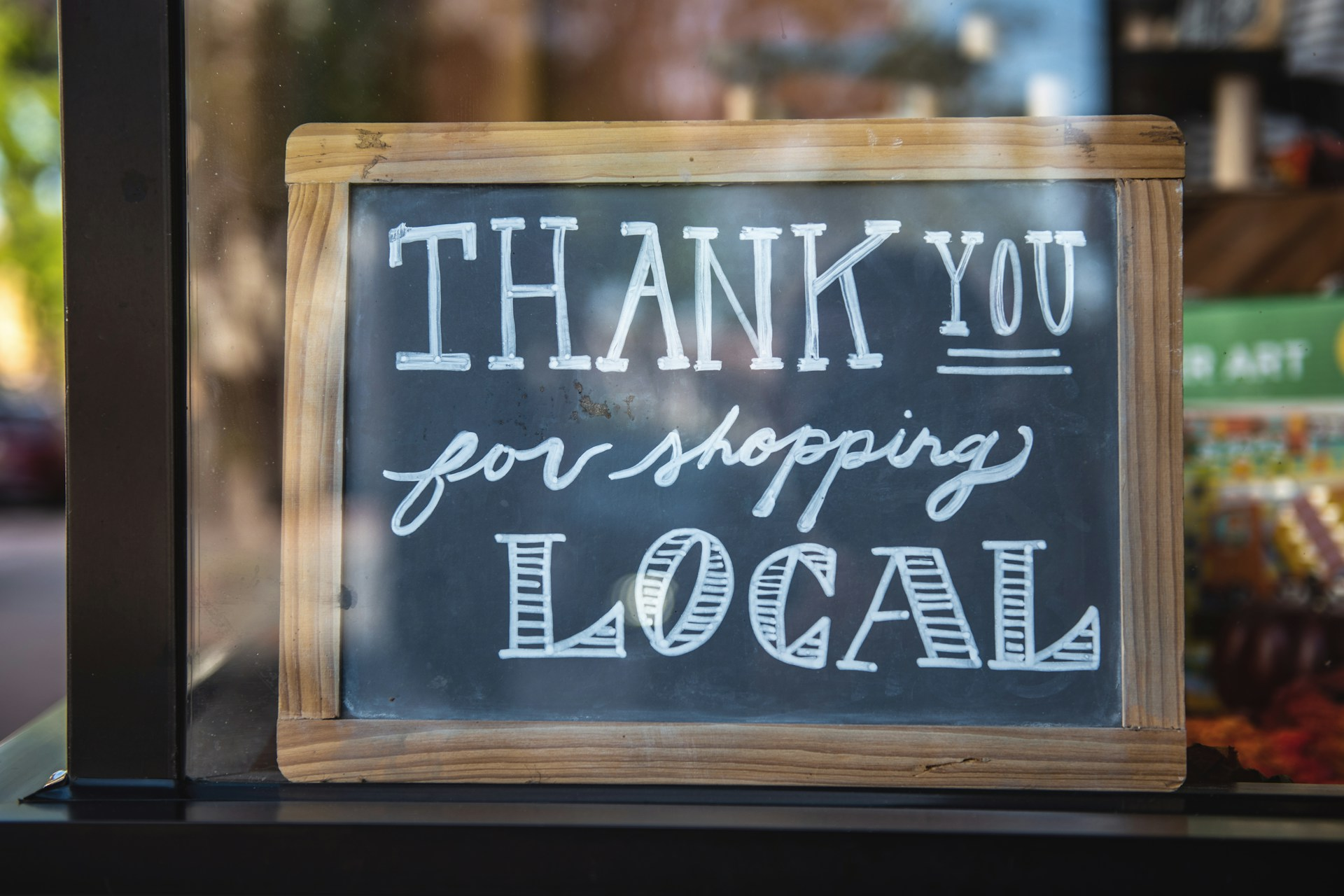Top 7 SEO Strategies to Help Your Small Business Win Online
A female small business owner running a local business using a tablet - https://unsplash.com/photos/woman-in-gray-sweater-holding-tablet-computer--THiqda3iGM
Okay, let's get real: running a small business is tough, and making your mark online can feel even tougher. Not only do you need to perfect every aspect of your online presence, you also need to win out against large companies, enterprises, other small businesses, and all the competition in-between.
As an SEO expert, this is my life, and I get it. It takes hard, consistent, and persistent effort.
But here's the good news: SEO doesn't have to be a head-scratching mystery. With the right strategies, you can boost your website and attract customers.
Think of this guide as your playbook. I'm not just giving you theory – I'm sharing 7 tried-and-true tactics that actually get small businesses results. We'll cover everything from the essentials to those little tricks that give you an edge.
Ready to take your business to the next level online?
Let's dive in and ensure your website is working for you.
What is SEO? Everything You Need to Know
A woman works on her laptop improving her small business SEO by working on her Google Business profile - https://unsplash.com/photos/woman-sitting-on-floor-and-leaning-on-couch-using-laptop-Nv-vx3kUR2A
First things first, let's break down the whole "SEO" thing in plain English and get on the same page.
SEO, which stands for Search Engine Optimization, is the process of making your website rank super highly on search engines like Google, Bing, and other search engines. You see, Google is run by algorithms, and these algorithms exist to give their users - the people searching for stuff - the best experience possible.
For example, Frank's having his morning coffee, and the sink explodes. Water's everywhere. The walls and floors are soaked. He patches it quick but he knows he needs a plumber in fast.
So, he opens his phone, searches for "plumbers in my local area," and sees what's out there. For Frank, if Google decided to show him cafes, what's on at the cinema, and how to make Easter cards, this would be a poor experience, and Frank would probably never use Google again.
But it doesn't.
Google shows all the plumbers' websites in the local area. However, it's not humans saying which results should come up in the search; it's those algorithms.
Now, these algorithms read every website around, scrape the information, and figure out what each website is about. Understand that these bots don't actually understand the content they're scanning, but they do see the words, the format, and the structure.
The data that provide search engines with the information they need to work.
The art of SEO is to ensure that your website shows Google and the other search engine algorithms precisely what's needed to appear at the top of the Google Search results when someone like Frank searches for something.
Search visibility in this way means more appearances at the top of the organic search results, which means more business.
https://www.youtube.com/watch?v=MYE6T_gd7H0
With all this in mind, think of SEO as your business's 24/7 online salesperson.
Unlike traditional digital marketing, SEO keeps working even when you're asleep. People searching for solutions any time of day?
Boom, your site pops up as a top result. That's the power of good SEO.
Now, here's the thing: SEO isn't a magic trick.
It takes some work (consistent work, rather than being one-and-done), but the payoff is huge. Higher search rankings mean more traffic, which means more leads and – you guessed it – more sales for your business.
It's not about being everywhere online. It's about being in the right place at the right time – right when potential customers are searching for what you've got.
Now, let's explore what the best SEO practices for small businesses are right now.
7 Best Small Business SEO Strategies and Practices
A man smiling on the phone running his small business with small business SEO - https://unsplash.com/photos/man-using-smartphone-on-chair-8YG31Xn4dSw
#1 - Keyword Research: Your Secret Decoder Ring
Keywords are the language your customers speak when they're searching online.
Those could be something like;
Best Mother's Day presents
Local plumbers in my area
How to grow a small business
What is SEO?
New Tesla, is it good?
This is what people search for, but if you're a car review website but you don't have the words "car review" anywhere on your website, the search engines won't know that that's what your website is about.
Therefore, you need to figure out those words and phrases so you can "talk" to them through your website.
That's the magic of keyword research.
But stop right there. You may have some ideas of what your keywords are, but simple terms like "plumbing" are highly competitive and are probably not even what your customers are searching for.
Never just guess what people might search for.
There are awesome tools out there, like Google's Keyword Planner, that show you which terms folks actually use and how often. The trick for small businesses is finding that "Goldilocks zone" – keywords with a good amount of organic search traffic but aren't so competitive that you'll get buried by bigger brands.
Here's an expert tip: Don't ignore long-tail keywords! These are longer, hyper-specific phrases. For example, instead of just targeting "shoes," a local shop might go for "women's hiking shoes in Portland, Oregon."
Fewer people search for those, but the ones who do are way more likely to be ready to buy. Think about how you use search engines and what you search for perspective.
Once you've got your target keyword list, it's not just about stuffing them everywhere. Be strategic! Use them naturally in your headlines, your blog posts, and even your product descriptions. Oh, and those sneaky meta tags? Those are like little keyword billboards for search engines.
Think of it this way: good keyword research gives you the super-secret passcode that unlocks a direct connection with potential customers.
#2 - Mobile Optimization: Your Website's Passport to Success
A man sits at his computer conducting a local search on his smartphone looking for a small business - https://unsplash.com/photos/man-in-black-crew-neck-shirt-holding-black-iphone-5-vfanNM5NtuQ
Let's be honest: if your website looks terrible on a phone, people will bounce faster than you can say "lost customer."
These days, 58% of ALL internet traffic goes through a mobile device, so the chances are that potential are most likely searching on their phone. Google knows this and will heavily penalize websites that are not optimized for mobile devices.
Long story short, you need to make sure your site gives them a great experience, no matter what screen they're using.
Think of it like this: a mobile-friendly website is like a perfectly tailored suit. It looks sharp and makes a great impression. A clunky website that doesn't work on mobile? That's the equivalent of showing up to a meeting in sweatpants.
Make sure the theme is decent and responsive. Make sure buttons and text don't overlap. Make sure buttons look good and are pressable on mobile devices.
If you're serious about getting found online, mobile optimization in this way is a MUST.
Here's the thing: making your site mobile-friendly isn't rocket science. Most modern website builders do this automatically. If you're not sure, try opening your site on your phone – is everything easy to read and tap?
If not, it's time to make some updates!
#3 - The Power of Content: It's Your Secret Weapon
One of the best SEO tips for small businesses is write blog posts for potential customers to find and read - https://unsplash.com/photos/person-using-macbook-pro-npxXWgQ33ZQ
Forget about just writing blog posts – think of content creation as your chance to blow people away and make a real impression. An impression that says, "Hey, I'm the expert on this topic, and you should listen to me. You can trust me."
This is the kind of value that keeps people coming back to your business over and over again.
Every article, every guide, and every video is an opportunity to show off what you know and prove why you're the best solution to your customers' problems.
And these days, if you're putting out poor, ChatGPT-generated content with the hopes of flooding your website with content because hey, how could that not work, you're setting yourself up for a fall.
Update: As of March 2024, Google is HEAVILY cracking down on AI-generated spam blog content, with entire websites being unindexed. Follow Google's guidelines and produce only authoritative, people-first content with unique information or perspectives people won't find anywhere else. You can still use AI tools if it helps, but make sure you're hard editing, adding a human touch, and oozing authority and insight. Read more about it here.
Here's the thing: when people find your content actually helpful, they'll stick around longer, click on more of your stuff, and maybe even share it. All of this tells Google, "Hey, this website is awesome!" Which, you guessed it, boosts your search ranking.
Plus, don't underestimate the power of becoming a trusted resource. Every time you solve someone's problem with a clear explainer or offer unique insights in, say, a video tutorial, you're building credibility. And guess who also loves credible websites? Search engines!
Expert Tip: Think beyond just blog posts. Could you create a downloadable checklist for customers? A quick-start guide to your products? Maybe do a short video series? Great content comes in all shapes and sizes. You can even repurpose content, such as turning a blog post into a video script.
Remember, your content is like your online personality. Make it informative, relatable, and memorable; you'll see happy customers and better search results.
#4 - Local SEO: Become the Neighborhood Favorite
A window sign of a small business that could appear in a local search - https://unsplash.com/photos/shallow-focus-photo-of-thank-you-for-shopping-signage-qvWnGmoTbik
Whether you've got a brick-and-mortar store, serve a specific area, or you're just a small business in general, local SEO is your game-changer.
It's about making sure people in your town find you first when they're searching for the stuff you sell, and this requires a little more focus in a few other areas compared with trying to rank number one worldwide.
Your first step in your small business SEO strategy?
Own your Google My Business listing.
This is prime real estate on Google, your key to ranking top in local search results, and it's totally free! Make sure your address, business hours, and all that good stuff are correct.
Oh, and don't skimp on photos – show off your space. Show off what you are as a local business and what you have to offer.
Next, get location-specific with your keywords. Instead of just "plumber," go for "emergency plumber Portland OR." Use local keywords to your area, or even the keywords of multiple locations, whatever your service area is.
This tells Google you're the right person for local searches.
Here's a little secret: local SEO isn't just about showing up in search results. It's about building a reputation in your community and target audience.
Encourage happy customers to leave online reviews and maybe partner with other local businesses for a promotion or event. This helps spread the word and makes you the go-to choice in your area.
If someone searches for your business or the service you provide and see a small business website with 50+ five-star reviews and all the boxes ticked, you're going to be their number one choice.
#5 - Backlinks: The Popularity Contest You Actually Want to Win
https://www.youtube.com/watch?v=BkR7L41SroU
Now, we're getting a little more technical.
Okay, imagine this: you're new to a town and looking for a good mechanic. You ask a few neighbors, and they all recommend the same place. You're instantly going to feel more confident about that mechanic, right?
That's how backlinks work for your website. Every time other websites link to yours, that's like a little recommendation. The more websites that "vouch" for you, the more trustworthy you look to Google. And trust means higher rankings. This is known as "domain authority".
But here's the thing: not all backlinks are created equal. A link from your local newspaper website or online directories (especially local directories as a local business)? SEO gold. A link from some spammy site? That could actually hurt your rankings.
Focus on building high-quality backlinks. Here's how:
Create awesome content people want to share. Infographics, in-depth guides, those are link magnets.
Guest posts on other blogs in your industry. (But only reputable ones!)
Reach out to websites with broken links and suggest your content as a replacement.
And yes, social media platforms count, so make sure you're posting there IF you're able to post quality content consistently, and you're not just posting for the sake of it.
Expert Tip: Network with other local businesses! Could you trade website mentions or partner on an event? An office may offer discounts to their employees at a local gym, both linking to each other. These kinds of links signal to Google that you're part of the community.
#6 - Become an SEO Detective
A close up of someone pinning a blank Post-It note to a corkboard with other notes and string - https://unsplash.com/photos/shallow-focus-photo-of-white-paper-sheet-mounted-on-cork-board-ZT9gjcJog6U
Think of SEO like a game. You learn the rules, make your plays, and then you've got to analyze the results to figure out what's working and what's not.
That's how you level up your strategy, and that's what I mean by SEO; it's never a one-and-done process. Trends change (such as the 2024 March Google Update), and new strategies emerge. Perhaps everyone is moving into VR. How are you going to ensure your business thrives in this tech?
The good news is you don't need a crystal ball to see how your website's doing. There are amazing tools out there, like Google Analytics and Google Search Console, that give you all the inside data you need: what keywords people are using to find you, which pages they love, and where they might be dropping off.
Here's the expert tip: Don't just stare at the numbers. Ask yourself why. Why is that one blog post crushing it? Could you write more like that? Is there a page where people leave quickly? Maybe it needs clearer information.
The best SEO pros are always tweaking their approach. They're testing new keywords, revamping old SEO content, and keeping a close eye on what their competitors are up to. This data isn't meant to intimidate you – it's your secret weapon for constantly improving your website's performance.
#7 - Take Care of the Basics
A top down view of a man working on his website to fix technical SEO issues, such as improving site structure or focusing local customers - https://unsplash.com/photos/young-millennial-in-denim-casualwear-sitting-on-chair-by-desk-while-using-paint-program-in-tablet-and-working-over-design-project-LxymmVgOXIc
While there are a ton of strategies, expert approaches, and fleeting fads when it comes to SEO, so many small businesses fail to remember that success really comes down to mastering the basics.
I mean taking care of the fundamental SEO tips every business should be doing and making sure they're working for you.
Nice and quick, I'm talking about things like;
Making sure every page has meta descriptions and optimized title tags
Having clear and concise target keywords for every page and blog post
Only posting high-quality, relevant content for your business
Taking the time to fix basic SEO issues
Ensuring you have a comprehensive website structure
Appearing on Google Maps and having an up-to-date Google Business Profile listing
As small business owners, I understand your plate is full, but taking the time to tend your online garden as it were, and this on-page SEO can pay dividends. This isn't a flash-in-the-pan kind of approach like paid ads that run for a while and fizzle out.
These are SEO tips for small businesses that create results both now and over the months or even years to come. Do all these things and do them well, and you'll rank higher in the search engine results pages and get more traffic than ever before.
Wrapping It Up
Let's face it, you built an amazing business, but if no one can find you online, it's like having a hidden gem in a dark alley. SEO is your key to unlocking the power of the internet, and guess what? You don't have to go it alone.
This guide gave you a taste of what SEO can do, but there's a whole world of strategies to explore. If you're looking for personalized advice, guidance, and an experienced expert's opinion on your website and SEO, I'm here to help.
Head over to ML SEO, and let's chat about crafting an SEO strategy that gets results. Trust me, your competition won't know what hit them!








